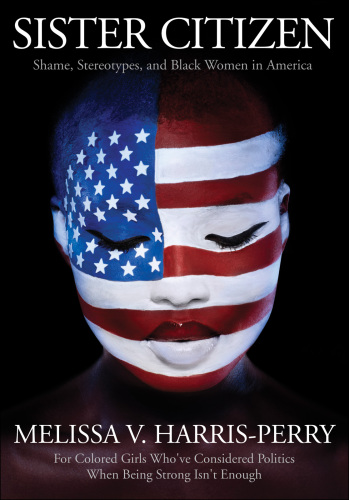
Sister Citizen
Shame, Stereotypes, and Black Women in America
کتاب های مرتبط
- اطلاعات
- نقد و بررسی
- دیدگاه کاربران
نقد و بررسی

August 8, 2011
Harris-Perry (Barbershops, Bibles, and BET), columnist for the Nation, draws on literature, biography, social science, anecdote, and focus group statistics to explore the three most pervasive (and pernicious) stereotypes of black women—Jezebel (who signifies sexual promiscuity), Sapphire (emasculating brashness), and Mammy (a devotion to “white domestic concerns”). She assays the political implications and consequences of these archetypes in the lives of contemporary black women—and for how they influences black women’s participation in American public life, finding that they enjoy a less than complete citizenship: “these misrecognitions contribute to pervasive experiences of shame for black women limit the opportunities for African American women as political and thought leaders.” Harris-Perry’s methodological style leaves a lot of room for academic debate, but her easy straddling of women’s and African-American studies and current hot-button issues (everything from Hurricane Katrina to the Duke lacrosse case) and her style could fit as easily into the classroom as a reading group.

September 1, 2011
Harris-Perry (political science, Tulane Univ.; Barbershops, Bibles, and BET: Everyday Talk and Black Political Thought) offers a fascinating academic discussion of barriers to African American women's presence in American political culture. Central to her thesis is the democratic idea that an individual's personal and national identity must be accurately recognized and named to permit full citizenship and pursuant political participation. She goes on to identify and analyze society's rampant misrecognition of African American women and its insistence on viewing them within the narrow confines of stereotypes. The text includes examples of negative portrayals of African American women and Harris-Perry's research on reportage on the impact of these portrayals. VERDICT This honest and unflinching display of the challenges to political participation in America offers readers little regarding strategies toward either overcoming or rectifying this situation. Further, when Harris-Perry draws the reader toward fictive parallels in which novelized African American women characters exhibit resilience while becoming the politicized embodiments of named stereotypes, the central issue becomes muddled. Recommended, nonetheless, for scholars and students of African American studies, feminism, political science, and American culture.--Jewell Anderson, Armstrong Atlantic State Univ. Lib., Savannah, GA
Copyright 2011 Library Journal, LLC Used with permission.

September 15, 2011
The media image of Michelle Obama as an angry black woman during the presidential campaign was part and parcel of the struggle of black women to present themselves without the baggage of old myths that limit them. Political scientist Harris-Perry examines how myths and images of black women affect the politics of their lives, their opportunities, and their emotional well-being. She draws on literature and interviews with black women regarding what it means to be a black woman and a U.S. citizen. She parallels the harrowing flood scenes in Zora Neale Hurston's classic novel Their Eyes Were Watching God and the images of the devastation of Hurricane Katrina in New Orleans. She examines Toni Morrison's Pecola in The Bluest Eye, Alice Walker's Shug Avery in The Color Purple, and other literary characters to explore specific myths and images of shame, strength, and sexuality and illustrate issues of race, gender, and class inequality. Harris-Perry offers fascinating observations of how black women are, at times, constricted by their mythology and asserts that their experiences act as a democratic litmus test for the nation.(Reprinted with permission of Booklist, copyright 2011, American Library Association.)

























دیدگاه کاربران